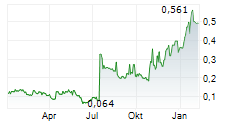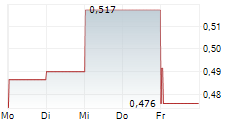
Cantargia (Cantargia AB; Nasdaq Stockholm: CANTA) today reported progress in the ongoing phase I clinical trial of CAN10. The independent data monitoring committee has reviewed unblinded data from study participants in the ongoing single dose part of the trial and recommended continuation to the next phase, multiple dosing in participants with psoriasis, planned to start during Aug 2024. In addition, new pharmacodynamic biomarker results from the study confirm that CAN10 potently inhibits the activity of inflammatory immune cells after a single dose.
"The CAN10 program continues to advance with important new data generated. These new results give further confirmation that CAN10 can become a safe and highly potent future treatment option for inflammatory diseases with a very high medical need," said Göran Forsberg, CEO of Cantargia.
CAN10 is one of two clinical projects in the Cantargia pipeline. The CAN10 antibody has been designed for treatment of several autoimmune/inflammatory diseases. The ongoing phase I clinical trial initially investigates increasing levels of CAN10 as single dose administration in healthy subjects followed by studies of multiple dosing in participants with psoriasis. The primary endpoint relates to safety. Details on the trial can be found at https://clinicaltrials.gov/study/NCT06143371.
The first eight dose groups with healthy subjects have now concluded the treatment period. No safety concerns have been observed and the ninth dose group is about to start in accordance with the protocol. The trial is placebo controlled and so far all reviews have been on blinded data. The independent data monitoring committee has now reviewed unblinded data and recommended to continue the study, which means that the next part of the trial, multiple dosing in participants with psoriasis, can start as planned during August 2024. Furthermore, biomarker samples taken during the study show a potent dose dependent blockade of IL1RAP function which was measured as inhibition of IL-36 signaling in immune cells. The effect is pronounced and long-lasting as full inhibition can be observed even a week after a single dose of CAN10.
For further information, please contact
Göran Forsberg, CEO
Telephone: +46 (0)46-275 62 60
E-mail: goran.forsberg@cantargia.com
This information is information that Cantargia is obliged to make public pursuant to the EU Market Abuse Regulation. The information was submitted for publication, through the agency of the contact persons set out above, at 2024-08-09 10:10 CEST.
About Cantargia
Cantargia AB (publ), reg. no. 556791-6019, is a biotechnology company that develops antibody-based treatments for life-threatening diseases and has established a platform based on the protein IL1RAP, involved in a number of cancer forms and inflammatory diseases. Cantargia's oncology program, the antibody nadunolimab (CAN04), is being studied clinically primarily in combination with chemotherapy with a focus on pancreatic cancer, non-small cell lung cancer and triple-negative breast cancer. Positive interim data for the combinations indicate stronger efficacy than would be expected from chemotherapy alone. Cantargia's second development program, the antibody CAN10, blocks signaling via IL1RAP in a different manner than nadunolimab and addresses treatment of serious autoimmune/inflammatory diseases, with initial focus on systemic sclerosis and myocarditis.
Cantargia is listed on Nasdaq Stockholm (ticker: CANTA). More information about Cantargia is available at www.cantargia.com.
About CAN10
The CAN10 antibody binds strongly to its target IL1RAP and has a unique capability to simultaneously inhibit signaling via IL-1, IL-33 and IL-36. Inhibition of these signals can be of significant value in the treatment of several inflammatory or autoimmune diseases. The initial focus of CAN10 will be on two severe diseases: myocarditis and systemic sclerosis. In preclinical in vivo models of myocarditis, a CAN10 surrogate antibody significantly reduced the development of inflammation and fibrosis, and significantly counteracted the deterioration of the cardiac function. The CAN10 surrogate also inhibited disease development in models of systemic sclerosis, psoriasis, psoriatic arthritis, atherosclerosis and peritonitis. A clinical phase I study, investigating CAN10 in healthy volunteers and psoriasis patients, is ongoing. Up to 80 subjects may be included in the trial. Good safety is shown at the completed dose levels, and additional data from the trial are expected continuously during 2024.


